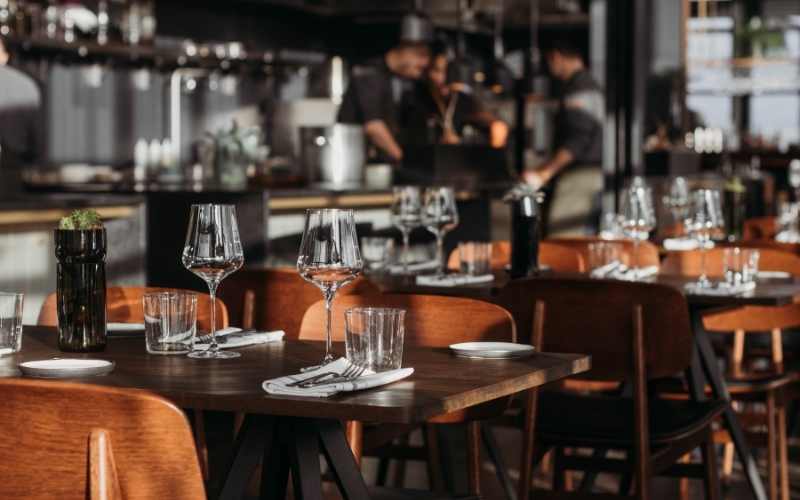If you operate a restaurant, it is vital to maintain high food quality standards for your customers. However, many restaurateurs might be tempted to compromise on quality to stay competitive.
This article will explore why food quality should never be compromised and what steps you can take to ensure that your restaurant maintains the highest possible standards.
Why Worry About Food Quality

Like most restaurant owners, you worry about how your customers will receive your food. After all, if your food is not good, your business will suffer. However, a delicate balance must be struck regarding food quality, and customer satisfaction must strike a delicate balance.
Too much quality control and your customers may become disgruntled, while too little and they may leave unhappy.
- Negative Customer Reviews and Loss of Business
Restaurant owners must ensure that the food they serve is of the highest quality to keep customers returning. Compromising food quality can lead to negative customer reviews, loss of business, and even lawsuits.
It is crucial for restaurateurs to have a clear vision for their food and to stick to it no matter what. It will help them maintain high standards and ensure their customers are always happy.
- Quality Food Reflects the Image of The Restaurant
If restaurateurs maintain a high-quality food offering, they must ensure that the ingredients are of the highest quality. If a restaurant compromises on the quality of its components, it will likely suffer in terms of customer satisfaction and reputation.
An excellent example of this is nachos. Many restaurants offer cheesy nachos as an appetizer, but they often use low-quality cheese that isn’t melted correctly. That makes the nachos unpalatable to eat and diminishes the flavor of the other ingredients. To maintain a high-quality product, restaurateurs must ensure that all their ingredients are of the best quality.
That doesn’t mean that restaurant can’t adjust during cooking; they must be mindful of what they’re doing. For instance, if a dish calls for black beans but the Restaurant only has red beans on hand, they should substitute those instead.
By being conscious about what ingredients they’re using and making simple substitutions, restaurateurs can ensure that their food remains delicious and consistent across all dishes.
- Consider Increased Customer Loyalty as a Restaurant Owner

Restaurant owners will likely see increased customer loyalty when providing good quality food. That is because customers appreciate good quality food and will be more likely to return to a restaurant if the food is good.
In addition, good food quality can also lead to word-of-mouth advertising. If customers are happy with the food at a restaurant, they may tell their friends about it, which can lead to increased business for the Restaurant.
- Poor Food Quality Can Lead to Decreased Employee Morale
Poor food quality can also result in health problems for employees. And poor hygiene practices of restaurant owners, for example, can lead to the spread of disease. It can be hazardous for employees already dealing with illness or injury. It can also be costly for the Restaurant to deal with sick employees.
Furthermore, poor food quality has been linked to increased obesity and other chronic diseases. Therefore, restaurant owners should ensure that their food is high quality if they want their employees and customers to remain healthy.
- It’s Not Just About the Taste
By now, many restaurant owners know that it’s not just about the taste of food quality. Food safety and health are also crucial factors to consider.
Foodborne illness is a big concern for both restaurant owners and their customers. When bacteria from contaminated food makes it into the system, it can cause serious health problems. Not only do customers get sick, but the Restaurant can also face legal consequences if they’re found responsible for any illnesses associated with their food.
Poor quality food can also lead to weight gain. Not only are unhealthy foods high in calories, but they also tend to be dense and filling – which means that people tend to eat more than they would otherwise.
It could lead to weight gain and obesity over time, which is unhealthy and costly in terms of healthcare costs and lost productivity.
Check best restaurant food supplier in UK delivering high quality frozen, chilled and ambient food products to the restaurants of UK.
Impacts Of Compromising on Food Quality
Compromising food quality as an owner and food distributor can have several negative impacts. In the restaurant industry, this could mean reducing the quality of ingredients used in dishes, leading to less satisfied customers and, ultimately, lower profits. This is also true for other food-based industries, such as grocery stores and food service businesses.

Unhappy customers are more likely to tell their friends and family about their poor experience, which can damage the reputation of the business in question.
In addition to impacting customer satisfaction, compromised food quality can have negative financial implications for businesses. For example, if a restaurant reduces the quality of its ingredients to save money, it could mean that the food is less flavorsome and less nutritious. This could lead to reduced sales and increased costs associated with maintaining a higher quality product.
- You May End Up With A Bad Reputation
Customers may avoid you if your Restaurant is known for serving subpar food. As is depicted by many surveys, they would be less likely to return to a restaurant if they knew it compromised food quality. It could seriously impact your business, especially if you’re trying to attract new customers.
- It Will Cost You More in The Long Run
If you’re not consistent with the quality of your food, you’ll eventually run into problems. For example, if you use lower-quality ingredients or cook your foods incorrectly, they may start to taste off. Plus, it can be costly to make corrections when this happens – think about the costs associated with recalls or lawsuits!
How to Improve the Food Quality of Your Restaurant

Food quality is one of the most important aspects of running a successful restaurant. It can make or break a business, and it’s something that should be given top priority. Here are some tips on how to improve food quality:
1. Use Fresh, High-Quality Ingredients
When it comes to food, the fresher the ingredients, the better, try to use organic or locally sourced ingredients whenever possible to ensure that your food is of the highest quality.
2. Check For Contaminants
Ensure all your ingredients are free of contaminants such as bacteria and fungus. It will help to ensure that your food is safe to eat and devoid of any unpleasant smells or flavors.
3. Follow Cooking Instructions Carefully
Some foods can be cooked in various ways, resulting in different textures and flavors. Be sure to follow specific cooking instructions for each dish you serve to achieve the best results.
4. Properly Clean and Sanitize Kitchens and Equipment
Keeping your kitchen clean and sanitized is essential for preventing foodborne illnesses from spreading. Also, keep utensils and equipment clean, so they don’t introduce unwanted bacteria into your food products.
Try out new cooking methods. Sometimes all it takes is a change in cooking method to create better-quality food at a lower price. For example, you could try deep-frying instead of frying in oil.
Last Thoughts
Managers are responsible to their customers for serving high-quality food that meets all dietary needs. If they compromise on food quality to save money, they are not favoring their customers or themselves.
Customers will leave unhappy, and the Restaurant’s reputation will suffer as a result. Restaurateurs must remember that good food costs money, and it is worth investing in quality ingredients and kitchen staff if they want their business to be successful.
Recommended: Why Caterers Should Not Compromise on Food Quality?






